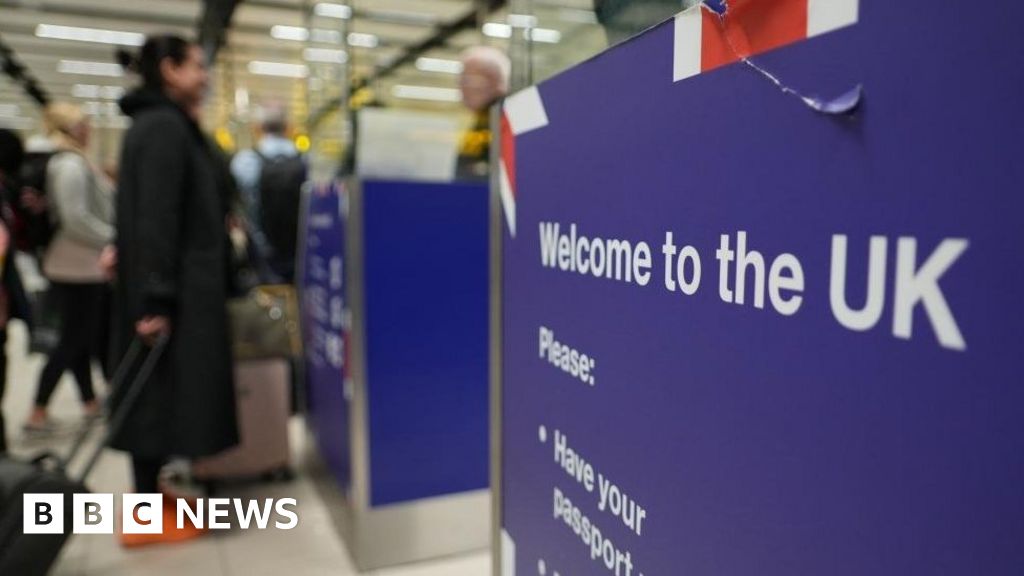- By Paul Seddon
- Politics reporter, BBC News
The government will hike the minimum salary required for foreign workers to take jobs in the UK, as part of plans to slash migration.
The minimum salary needed to get a skilled worker visa will rise from £26,200 to £38,700 next year.
The rise featured in a five-point plan to curb immigration announced by Home Secretary James Cleverly.
He said migration to the UK was “far too high” and there had been “abuse” of health and care visas for years.
Conservative MPs have put Prime Minister Rishi Sunak and his government under pressure to act on legal migration, after official figures last week showed net migration hit a record 745,000 last year.
On top of the new salary requirements, Mr Cleverly said the government’s plan would:
- Ban health and care workers bringing family dependants to the UK
- End companies being able to pay workers 20% less than the going rate for jobs on a shortage occupation list
- Raise the minimum income for family visas to £38,700 from £26,200, from next spring
- Ask the government’s migration adviser to review the graduate visa route to “prevent abuse”
The home secretary claimed the five changes to the UK’s immigration system would mean “more than 300,000 people who came to the UK last year, would now not be able to”.
“Enough is enough,” Mr Cleverly said. “Immigration policy must be fair, legal, and sustainable.”
Asked whether care workers would be deterred from coming to the UK because they would not be able to bring families, the home secretary said he believed an individual with a family might be dissuaded, but there were still care workers who would be willing to put themselves forward.
Labour’s shadow home secretary Yvette Cooper the migration plan was “another example of the total chaos at the heart of this government”.
She said while net migration “should come down”, there needed to be a “proper plan” for training and recruiting British workers.
Unison general secretary Christina McAnea said the “cruel plans spell total disaster for the NHS and social care”.
“Migrant workers were encouraged to come here because both sectors are critically short of staff. Hospitals and care homes simply couldn’t function without them,” she said.
Care sector staffing
Prime Minister Rishi Sunak has promised to reduce migration levels, which have risen since Brexit despite a Tory 2019 election promise to reduce them.
On Monday, his spokesman told reporters that migration was too high, and there had been “abuse” of visas.
However, latest statistics show the challenge ministers will face in reducing migration into the health sector, which has come to rely heavily on hiring workers from abroad.
The statistics showed the number of health and care worker visas issued in the year to September stood at 143,990, double the previous year.
In total 83,072 of these visas were issued for care workers and home workers – a sector facing staffing shortages and where providers have resisted curbs on their ability to hire foreign staff.
The government’s migration advisers have previously said “persistent underfunding” of local councils, which funds most adult social care, is the most important factor in the staffing crisis.

William Turner is a seasoned U.K. correspondent with a deep understanding of domestic affairs. With a passion for British politics and culture, he provides insightful analysis and comprehensive coverage of events within the United Kingdom.








